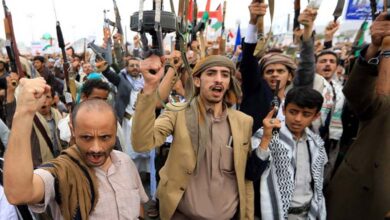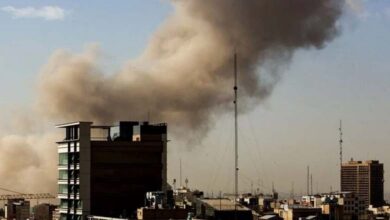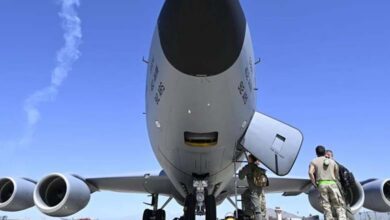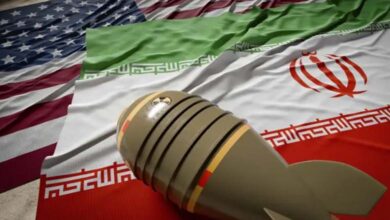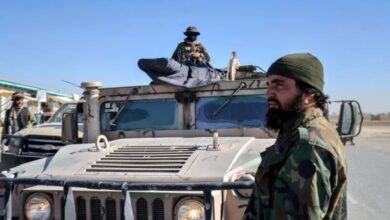Iran exploits the War on Gaza to mobilize its agents in Azerbaijan
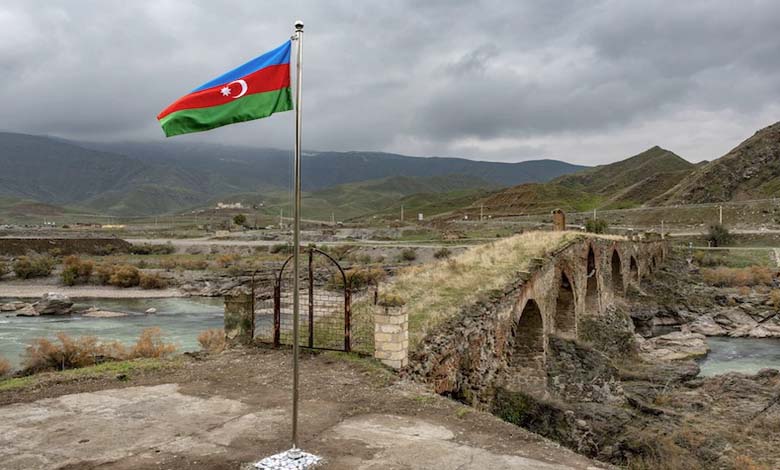
Calls from the Iranian city of Qom are urging the angered to gather and enlist in militias to strike targets in the Caucasus and Azerbaijan. Iran sees the war on Gaza as a opportune moment to activate its arms in Azerbaijan, an ally of Tel Aviv, through the “Hosseiniyun” group leading a campaign to target Israeli interests and even attack current Azerbaijani government buildings.
According to a report published by the National Interest magazine, since October, calls have been issued in the Iranian city of Qom to gather hundreds by threatening to strike Zionist targets in the Caucasus, Azerbaijan, and northern Iran.
Unifying the group under the name “Azerbaijani Islamic Resistance Movement – Hosseiniyun,” Tawhid Ibrahim Beiglou aims to overthrow the secular government of Azerbaijani President Ilham Aliyev. Last year, through their accounts on YouTube, TikTok, Instagram, Telegram, and Facebook, they called for the dissemination of their ideology. Since the start of the war in October, they have had a “powerful tool for extremism to use in their fight against Baku.”
Azerbaijan is often viewed within the scope of its conflict with Armenia, and the repercussions of the conflict in the region, where Azerbaijan is a significant supplier of oil and gas to U.S. allies like Israel, making it a strategically important country united with a common ally in addition to shared hostility towards Iran.
Azerbaijan is a crucial link in Israel‘s foreign relations, replacing Iran, which severed ties with Israel after Ayatollah Khomeini’s return to Iran in 1979. Azerbaijan, therefore, replaced one Shia state with another. Additionally, it is part of Israel‘s quest for oil, as it imports 40% of its needs from Azerbaijan at affordable prices.
The “Hosseiniyun” group previously called for the assassination of the mayor of the city of Ganja in western Azerbaijan in January 2017. A year later, a “Hosseiniyun” fighter, who studied in Qom and underwent training in Syria, fired at the mayor and his personal guard, seriously injuring them.
Sources knowledgeable about security activities in Azerbaijan claim that cells associated with this group are behind disruptive activities in and outside the country, including a thwarted attack on the Israeli embassy in July, coordinated with the Tehran-backed “Fatemiyoun Brigade.” There were also attempts to target Israelis in Cyprus in 2021.
In late November, Tehran honored Ibrahim Beiglou at an annual festival celebrating Iranian military achievements.
The group’s origin dates back to the former Quds Force commander Qassem Soleimani, who supervised its establishment in 2015, training its members in Syria, where they fought alongside Hezbollah militias and groups loyal to Tehran.
“Hosseiniyun” serves as Iran’s agents, referring to itself as a “religious, social, and political ethnoreligious armed group based on Shia Islam and the religious thoughts of the Iranian Revolution leader Ayatollah Khomeini.” They are part of Iran’s policy of exporting the ideologies of the regime.
Historically, relations between Baku and Tehran have been sensitive, as Turkish-speaking Azerbaijan is a close ally to historically rival Turkey. Azerbaijan also purchases weapons from Israel, a significant adversary to Iranian authorities.
Earlier this year, Azerbaijani authorities announced the arrest of six individuals accused of planning a coup under orders from Iranian intelligence.
Azerbaijan’s Ministry of Internal Affairs and the Prosecutor General’s Office stated that the six suspects, all Azerbaijanis, were “recruited by Iranian intelligence to destabilize the situation in the country.” The same source confirmed that their mission was to “form a resistance group tasked with establishing a Sharia-ruled state in Azerbaijan through armed actions to destabilize and violently overthrow the constitutional regime.”
Israel opened an embassy in Baku, Azerbaijan’s capital, during the term of former Prime Minister Yitzhak Rabin. In contrast, the Muslim state refused to open an embassy in Tel Aviv due to pressures exerted by Arab and Islamic countries on Azerbaijan. Relations between the two countries were managed through Azerbaijan’s airline in Israel.
Israel openly deals with the Armenian-Azerbaijani conflict, admitting that it supplies Baku with advanced weapons. Azerbaijani leaders, justifying the arms purchases, acknowledge aiming to liberate the disputed Nagorno-Karabakh region.
Israel sells unmanned aerial vehicles, anti-aircraft systems, and missile defense systems to Azerbaijan. It also sold “Hermes 45” unmanned aerial vehicles manufactured by the Israeli company “Elbit,” as well as the “Harop” loitering munition, a drone-like missile with the capability to autonomously identify targets based on radar or radio waves, according to The Washington Post.
The Israeli airline company owns a drone factory in Baku, in partnership with the local government. The factory is named after the founder of the republic and the father of the current president.
The Israeli intelligence agency, Mossad, has a large base in Azerbaijan with advanced spying and threat sites against Iran, perhaps planning attacks on it. Iran has a Azerbaijani-speaking group of about ten million people and an Armenian group of about 100,000 people.




